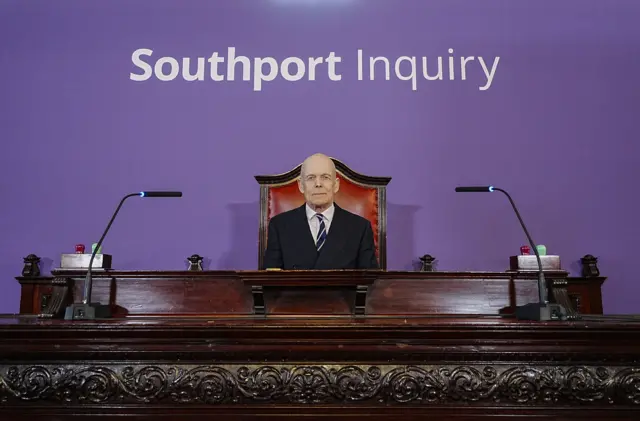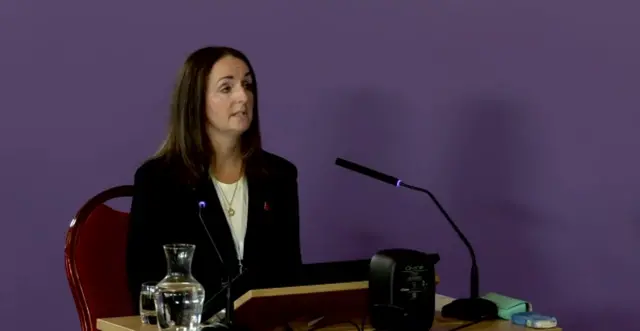How do we deal with children intending to commit serious violence?published at 11:41 GMT 4 November
 Jonny Humphries
Jonny Humphries
BBC News
 Image source, PA Media
Image source, PA MediaSir Adrian Fulford, chairman of the inquiry, suggests to Ms Roberts-Bibby that there is a "gap" in how to deal with children who may have the intention of "committing a very serious offence" in the future.
She agrees there is sometimes "resistance" by organisations to take responsibility even when different agencies attend meetings together.
Sir Adrian points out: "AR had the one conviction... he had made multiple statements and had behaved in a way that indicated he wanted to at least cause really serious bodily harm to another.
"Given that he had been sentenced for a previous offence but his intentions did not constitute another offence... for someone like that do you agree there should be an order that doesn't take away his liberty but which imposes the least necessary restrictions to try to ensure that, for instance, he's not able to get into a minicab that he has ordered to go to a school carrying a knife so he can attack others?"
Ms Roberts-Bibby agrees but says such an order should only follow after "all of the other things have been done first", such as gathering the necessary information and "effective triangulation of risk".

